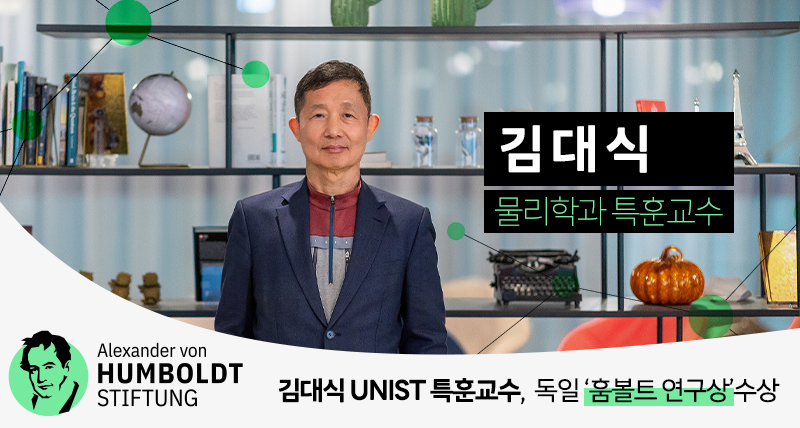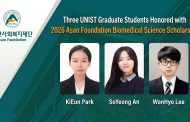Distinguished Professor Dai-Sik Kim of the Department of Physics at UNIST has been bestowed with the prestigious Humboldt Research Award from the renowned Humboldt Foundation, known for facilitating collaborative endeavors with German scientists.
Established in 1953, the Humboldt Research Award is a distinguished accolade bestowed annually by the Alexander Von Humboldt Foundation in Germany upon researchers who have achieved exceptional breakthroughs in the fields of humanities, social sciences, and engineering. Sixty-one of the scholars supported by the Humboldt Foundation have achieved Nobel laureate status.
Professor Kim was acknowledged by the Humboldt Foundation for his remarkable contributions to the field of nanophysics spanning three decades. Furthermore, the foundation lauded Professor Kim for his mentorship of numerous female scientists, including Dr. Minah Seo from the Korea Institute of Science and Technology (KIST), Professor Young-Mi Park from Incheon National University (INU), and Dr. Jineun Kim from the Samsung Advanced Institute of Technology.
Professor Kim’s groundbreaking research in femtosecond stimulated Raman scattering (FSRS) during his doctoral studies has been a hallmark of his illustrious career. He was the first person in the world to successfully measure this phenomenon on femtosecond time scales. Over the past fifteen years, he has concentrated on terahertz wave nano-optics and developed a revolutionary flexible nanogap, modifiable at atomic levels through the amalgamation of plasmonics and polymer nanotechnology.
Esteemed as a committed physicist, Professor Kim has also been active in advocating against circumcision, an emerging trend in Korea. For his unwavering efforts, he was bestowed with the International Human Rights Award by the International Training and Education Center on Circumcision, a non-governmental organization affiliated with the United Nations.
Expressing his gratitude for the Humboldt Research Award, Professor Kim stated, “This award stands as one of the most esteemed international recognitions a scientist can receive, signifying the acknowledgment of my three decades of unwavering dedication to research.” He further added, “I pledge to continue my pursuit of diverse studies to advance the realm of nanophotonics.”
Notably, the Humboldt Foundation confers up to one hundred Humboldt Research Awards annually, each valued at 60,000 euros. Recipients of this esteemed award are extended the opportunity to engage in a research project of their choice with specialized colleagues at a research institution in Germany. The award facilitates a cumulative stay of up to a year, which may be divided into multiple visits.







![[2026 UNIST Matriculation] “Design Questions the World Has Never Seen!”](https://news.unist.ac.kr/wp-content/uploads/2026/02/사진-박종래-UNIST-총장이-2026년-입학식사를-전하고-있다-1-1-190x122.jpg)
![[2026 UNIST Commencement] “Become Way Makers Who Open Paths Where None Are Drawn!”](https://news.unist.ac.kr/wp-content/uploads/2026/02/사진-박종래-총장이-UNIST-학위수여식사를-전하고-있다-3-1-190x122.jpg)
![[2026 UNIST Commencement] Voices of Class of 2026](https://news.unist.ac.kr/wp-content/uploads/2026/02/Untitled1-190x122.jpg)


